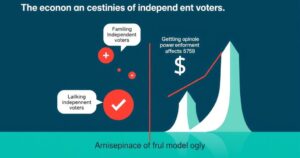Rhode Island Politics Roundup: Val Lawson’s Senate Presidency and More
Lawson’s election sparks debate over union influence in politics.
In a significant political shift, Val Lawson has been elected the new president of the Rhode Island Senate after winning the election on Tuesday. Lawson, who is notably also the head of the National Education Association Rhode Island teachers’ union, is facing scrutiny on how she will balance these dual roles. During her first press interactions, she emphasised her commitment to avoiding any conflicts of interest, promising diligence in decision-making. This position has sparked discussions about the influence of organised labour within the Senate, especially as several key figures lauded her election as a strong union leadership opportunity. However, some dissenters, notably Joe Powers from the RI GOP, raised alarms about political self-service overshadowing public service. It remains to be seen how Lawson will navigate the political waters as budget uncertainties from the Trump administration loom large over the ongoing legislative session.
Pearson reflects on Senate dynamics after loss to Lawson.
In the run-up to Lawson’s presidency, Sen. Ryan W. Pearson expressed feelings of vindication regarding concerns he previously raised about Dominick Ruggerio’s health and its implications for Senate leadership. Pearson, who has seen his role diminish following the internal party dynamics, noted that his fears about party politics were validated during the election. While he managed to secure eight votes, this was significantly lower than he anticipated, showcasing a clear division within the Senate Democrats. His comments pointed towards a challenging atmosphere as rivalries within the party become more pronounced, especially in light of his unexpected loss to Lawson, which forces a reevaluation of competitive strategies moving forward.
New legislation aims to bolster Rhode Island’s business sector.
Meanwhile, House Speaker Joe Shekarchi is planning to introduce a bill next week aimed at retaining the giant insurer FM Global in Rhode Island. Supporting local businesses has taken precedence as leaders attempt to shore up economic stability amid ongoing discussions about the state’s financial future. This initiative highlights a focus on creating a favourable environment for major employers within the state, ensuring job security for many Rhode Islanders. The broader implications of such moves will be critical as lawmakers navigate through uncertain economic waters, particularly in light of recent shifts in the political landscape following Lawson’s election.
Rhode Island works to reform police accountability measures.
In legislative changes, Rhode Island is now one of the last states to adopt reforms aimed at preventing the movement of officers with a history of misconduct—a practice referred to as ‘wandering officers’. Following the tragic shooting of Cornel Young Jr., efforts to enhance accountability within the police force have faced resistance from unions and advocacy groups. Rep. José Batista’s bill, meant to enforce stricter protocols, has drawn significant pushback, indicating a struggle to enact meaningful reforms despite public and governmental interest in holding law enforcement accountable. As these discussions unfold, the impact on community trust and officer conduct is crucial and will need careful management going forward.
State leaders support CharterCARE’s transition amid healthcare woes.
Governor Dan McKee, along with Senate President Val Lawson and House Speaker Joe Shekarchi, recently issued a joint statement in support of CharterCARE transition to non-profit status. This announcement aims to assure potential buyers regarding the acquisition of the troubled hospital network, which has been under financial scrutiny for years. Their focus on stabilising these key healthcare providers reflects the state’s urgent need to secure quality medical services while navigating the complexities tied to the recent legislative changes. The ongoing discussion about the future of healthcare in Rhode Island coincides with the broader financial patterns affecting the entire state, raising questions about sustainable solutions for essential services.
Youth political groups aim to engage younger voters effectively.
On the grassroots level, the Rhode Island Young Republicans and Young Democrats are ramping up their efforts to engage younger voters, driven by a recent Harvard Youth Poll showing dissatisfaction among this demographic. Both groups are establishing new local chapters to amplify their reach and inspire participation, particularly as younger citizens express frustration with the political status quo. Critics note that this generation faces debilitating financial obstacles and calls for leaders who genuinely understand their challenges rather than simply lecturing them about resilience. Listening and acknowledging their struggles seems to be a priority among these young political operatives, as they strive to cultivate a vibrant political future.




